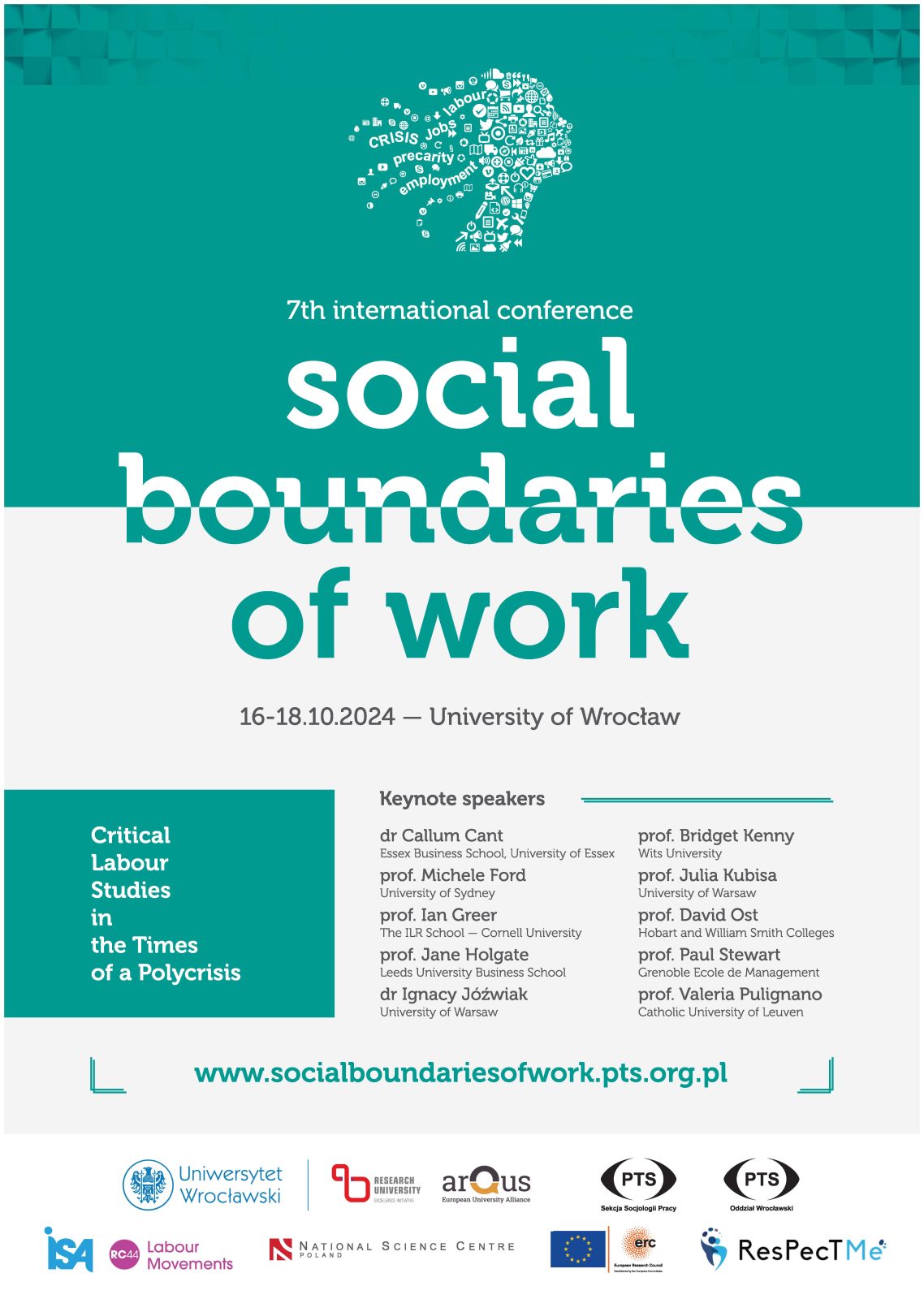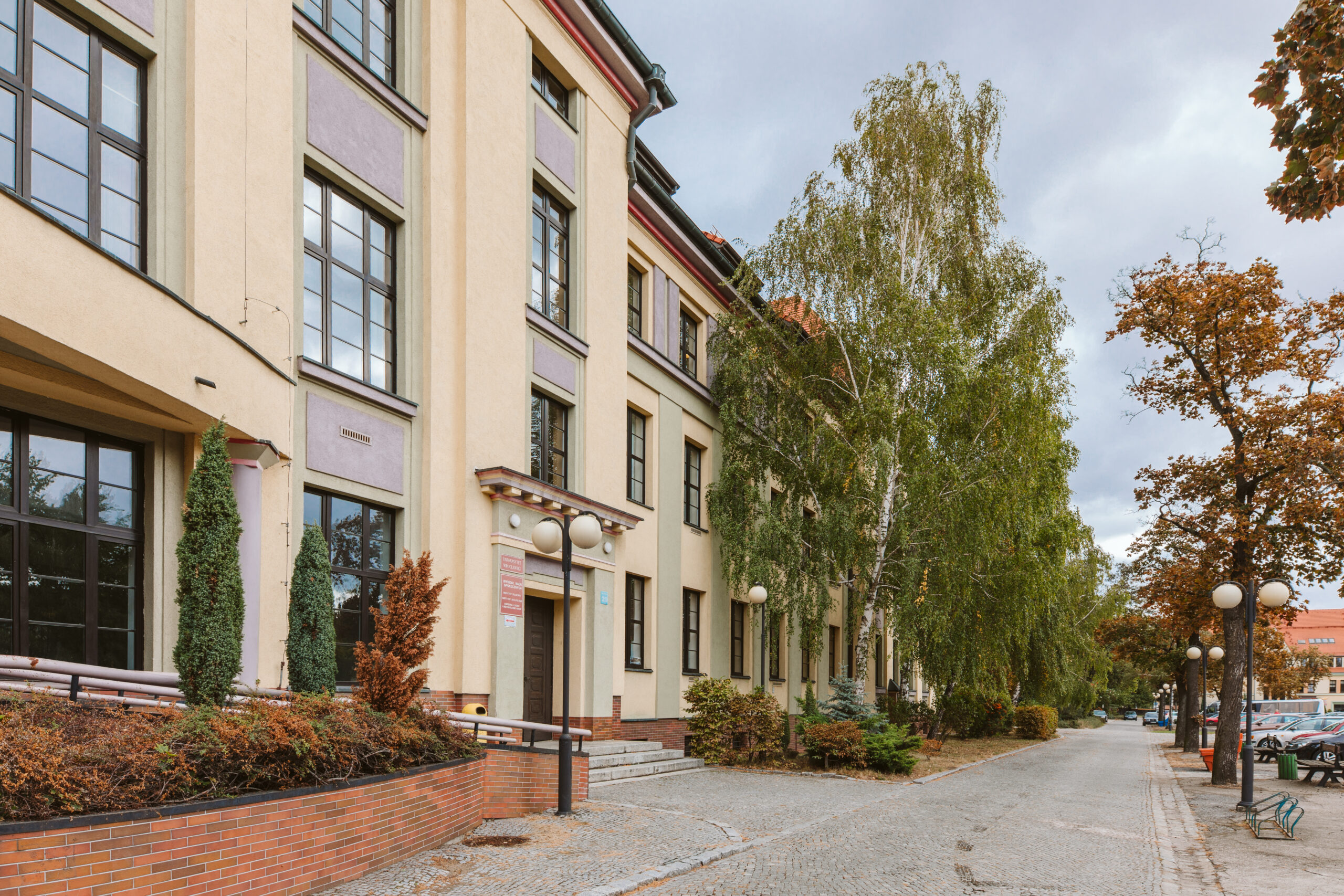This year’s edition takes place under the motto ‘Social Boundaries of Work: Critical Labour Studies in Times of Polycrisis’ and is hosted and organised by the Department of the Sociology of Work and Economic Sociology at the Institute of Sociology, University of Wrocław. The event is co-organised by the Critical Labour Studies Network, the Polish Sociological Association – Sociology of Work Section and Wroclaw Branch, and the Research Committee 44 Labor Movements of the International Sociological Association. The conference continues the tradition of previous editions and focuses on bringing together academia, activism and the media.
An important aim of the conference is to reflect on contemporary challenges, especially the social consequences of overlapping crises.
The pandemic exposed weaknesses arising from neoliberal reforms of public services and the social security system, and the escalation of the war in Ukraine and Middle East increased the migration and caused mass refugee movements. Inflation has increased social inequality and precarity for many groups of workers. As a backdrop to these developments, the climate crisis continues to grow, forcing the restructuring of certain industries, which poses additional challenges for the world of work. Particularly affected are disadvantaged groups in the labour market: the young, migrants and people with disabilities, who are often in low-paid and precarious jobs. There is also a gender dimension to the polycrisis, as can be seen in the unequal care workload and the difficult working conditions of essential workers (essential workers). In addition, the nature of work is changing – new technologies are increasing control over workers, and remote working requires more self-discipline and impacts on private life.
All these challenges make it necessary to discuss how to study labour. Meanwhile, as a consequence of neoliberal reforms, the academic world is also becoming precaricised, and inequalities both between countries and universities and within the university are increasing. This makes it increasingly difficult for academics to engage with the public.
The three conference days aim not only to discuss but also to develop practices and recommendations that can improve the quality of workplaces.
The first day of the conference, on 16 October, has been planned as an open workshop and discussion section. Panels will cover topics such as the working conditions of platform workers, organising labour migrants and the situation in the public service sector after the pandemic. The world of work is worth debating among practitioners and practitioners, which is why the invited discussants include, among others, representatives and representatives of trade unions, employers’ organisations and the Ministry of Family, Labour and Social Policy. The event will also include the Awareness Workshop of the ERC ResPecTMe project founded by th the European Commission.
During the next two days, both in plenary sessions and in discussions within thematic groups, issues such as challenges to worker mobilisation, strategies of different professional groups in dealing with crises, precarisation, the impact of digitalisation on work, and the links between the climate crisis and the world of work will resound.
Key note speakers include Dr Callum Cant from the University of Essex, Prof Michelle Ford from the University of Sydney, Prof Ian Greer from Cornell University, Prof Jane Holgate from the University of Leeds, Dr Ignacy Jóźwiak from the University of Warsaw, Prof Bridget Kenny of Wits University, Prof Julia Kubisa of the University of Warsaw, Prof David Ost from William Smith Colleges, Prof Paul Stewart from Grenoble Ecole de Management and Prof Valeria Pulignano from the University of Leuven.
The conference will be attended by 120 participants from all over the world.
The full programme can be found on the conference website and it is attached
https://socialboundariesofwork.pts.org.pl/en/program/





